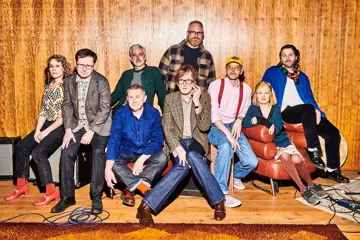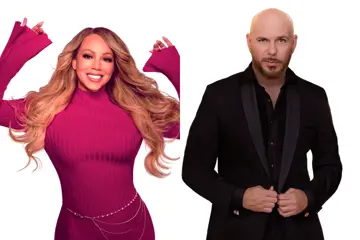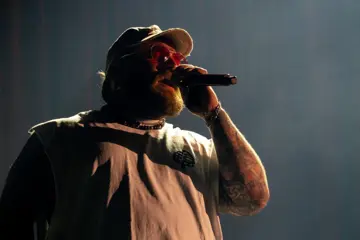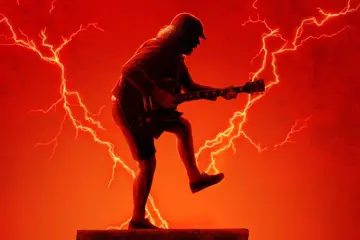 Luude
LuudeIt’s abundantly clear to anyone even vaguely engaged with electronic music that we are in the middle of a boom for Drum ‘n’ Bass. As Cyclone Wehner documented in fantastic detail last October, the genre emerged in the late ‘90s as jungle ruled, and the likes of Andy C emerged before the genre had a bit of a resurgence in the mid-to-late 2000s. In the early 2010s, we saw pop crossover tracks from the likes of Rudimental become supremely popular.
After stepping aside for genres like Dubstep and Future Bass throughout the mid-to-late 2010s, Drum ‘n’ Bass is back and as popular as ever. The past 18 months, in particular, have seen the genre skyrocket in popularity. And it’s not just the new wave of cleaner, remix-driven Drum ‘n’ Bass that fills club playlists; more established and ‘pure’ D&B artists have enjoyed a renaissance, too.
So why is this happening now?
It’s impossible to go past the impact of Aussie producer Luude and his 2021 remix of Men At Work’s seminal hit, Down Under. Jamie Raeburn, CEO of record label Sweat It Out (to whom Luude is signed), says the “big crossover” has played a significant role in the current wave.
“Luude has been incredibly influential. He was able to crack the charts early without any support from commercial radio (that came later), and it gave the scene a real spark,” he says.
Drum ‘n’ Bass was big in the late 2000s and 2010s without ever going close to being popular in mainstream music culture. So, what’s different this time around?
Despite the fact that the likes of Luude are getting airplay on mainstream commercial radio now, Raeburn says there’s no major difference in radio’s attitude. Instead, it’s been the power shift away from radio, which previously blocked the growth of the genre.
“You don’t need radio anymore… People are finding the music on streaming platforms and TikTok.”
Karl Thomas, better known as Western Australian producer ShockOne (who runs his own record label Dark Machine), has been making Drum ‘n’ Bass since the mid-2000s. He agrees that “TikTok and Luude opened up a whole new generation to Drum ‘n’ Bass. The majors start going ‘more of this, please!’ and you get that snowball effect.”
What followed was something of a surprise to Thomas as there was a significant renewed interest in his music, but not all of it was completely positive.
“I was doing some shows in London and all of a sudden I had all these major labels wanting to meet with me because they’d listened to a couple of my tracks that were radio friendly. Long story short, I’m going in there, and they’re telling me my back catalogue is quite heavy, and I’m saying, ‘Guys, I’m not your next TikTok star’,” he laughs.
A lot has been made of the resurgence of live sets and club nights in the post-COVID era. Raeburn reckons that many young people clubbing at the moment wouldn’t ever have heard Drum ‘n’ Bass before. “They got bored of house music and weren’t around for the last wave, so it’s all new to them.
In addition, popular DJs are spinning more D&B in their sets. “Your bigger dogs like Diplo and Dom Dolla are dropping things in their sets; it’s a bit alien, so it’s a powerful punch when you hear something in the middle of a tech house set that you can’t dance to. People get confused by it, and some people fall in love with it,” Raeburn says.
Raeburn adds that the old school ‘puritans’ of Drum ‘n’ Bass all hate the commericial crossover stuff… “But I absolutely love it because it’s getting more people involved and crossing over to the ‘puritan’ down tempo stuff. I just like people listening to Drum ‘n’ Bass at the end of the day. The new generation, the Dimensions of the world, they’re getting proper airtime.”
Returning to the role of TikTok, Thomas says there’s been good and bad to come from how people discover Drum ‘n’ Bass through social media. He’s thankful for the boost the genre has received.
“I’ve done three American tours in the last year, and I don’t think I’d be doing those tours if it wasn’t for Luude and that song blowing up,” Thomas reflects.
He adds: “This might be the Luddite gatekeeper purist in me who asks whether it’s good that a generation of new people think Drum ‘n’ Bass is just fast remixes of songs they already know in 30 and 15-second clips?
“A percentage of people will discover stuff that’s a bit more pure and underground, and they wouldn’t have found them if they hadn’t heard something on TikTok… But I’d hate for music in general to become merely content fodder for social media platforms.”
Thomas recently released a new ShockOne album, Organism Algorithm, although he’s not sure whether albums have much impact in this day and age.
“The way people consume and relate to music is really different now compared to five years age,” he says. “Sometimes I ask myself, ‘Why even put out an album?’. Listening habits have changed, and albums have to be good because people’s attention spans are shorter and can easily take them elsewhere while streaming.”
And as for what’s next?
“Drum ‘n’ Bass will fade away… but it will come back again,” Raeburn says with certainty. “The thing I love about D&B is it never goes away,” ShockOne says.
“It bubbles in the background. Rob Swire came along and reinvented the genre in the 2000s with Pendulum, creating the framework for everything that SubFocus, Dimension and myself did. We all kept making the music when it fell out with pop culture, and we will next time it happens too.”








